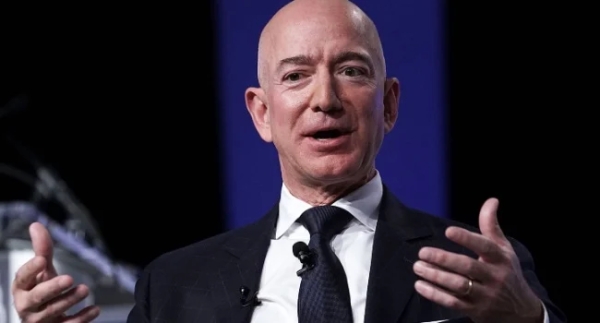Global Energy Alliance for People and Planet (GEAPP), an organisation founded by Bezos Earth Fund, the Rockefeller Foundation and Ikea Foundation, are piloting a solar mini-grid programme in Nigeria to address unreliable electricity and boost productivity.
Bezos Earth Fund was founded by Jeff Bezos, a United States billionaire, and the Rockefeller Foundation was established by the late American industrialist, John D. Rockefeller, while the Ikea Foundation was formed by the late Swedish businessman, Ingvar Kamprad.
In a report on Monday, Bloomberg said GEAPP, formed in 2021, has a programme, demand aggregation for renewable technology (DART), which lowers solar equipment costs by pooling developers’ needs and also offers a $25 million financing facility for equipment imports, repayable in naira.
Speaking during an interview at one of the project sites in Ogun State, Muhammad Wakil, GEAPP’s country delivery lead, said the pooling arrangement provides savings of up to 30 percent for developers.
“GEAPP provides grants, loans, and technical assistance to mini-grid developers, taking advantage of a government rule introduced last year that allows mini-grids to operate alongside national grids. This programme’s success has led the World Bank to pledge $130 million for similar facilities,” Wakil said.
“The site in Ogun State is a one-megawatt solar mini-grid built by Darway Coast, a Nigerian mini-grid company. By the end of the year, it will provide the local community with 24-hour electricity, replacing the eight hours currently supplied by Ikeja Electric Plc.”
The publication also reported that GEAPP helped build the first interconnected mini-grid in December in Nigeria, adding that two more are under construction, with funding available for a fourth.
The facilities, according to the report, are operated by private developers and supplement the limited hours of supply from the national grid to power businesses and homes continuously.
‘NIGERIA NEEDS THOUSANDS OF SIMILAR PROJECTS TO ELIMINATE ENERGY POVERTY’
Wakil said thousands of similar projects are needed across Nigeria to eliminate energy poverty.
He explained that, initially, GEAPP aims to build a pilot project in each of the regions served by Nigeria’s 11 power distribution companies (DisCos), with a long-term plan to facilitate 10 gigawatts of mini-grids, however, the programme complements efforts to establish mini-grids in areas without access to the national power grid.
“We need hundreds or thousands of these kinds of projects across Nigeria to end energy poverty,” Wakil said.
“We have shown it’s a viable business model.”
According to the report, Fatima Haliru, power purchase manager at Ikeja Electric, said everybody is open to creating energy and selling to customers based on the provision of the Electricity Act.
Haliru said instead of engaging Darway as competitors, “it’s better to engage them as partners”.


